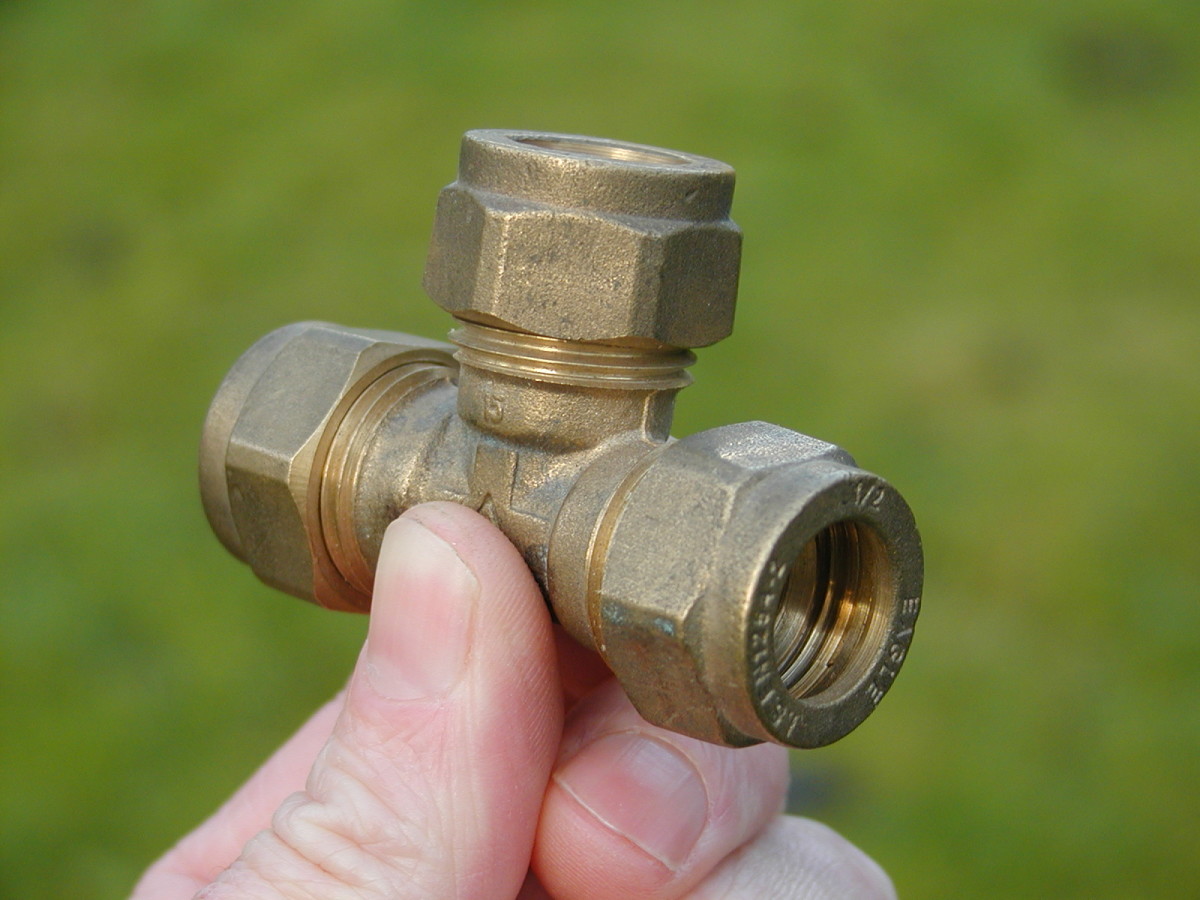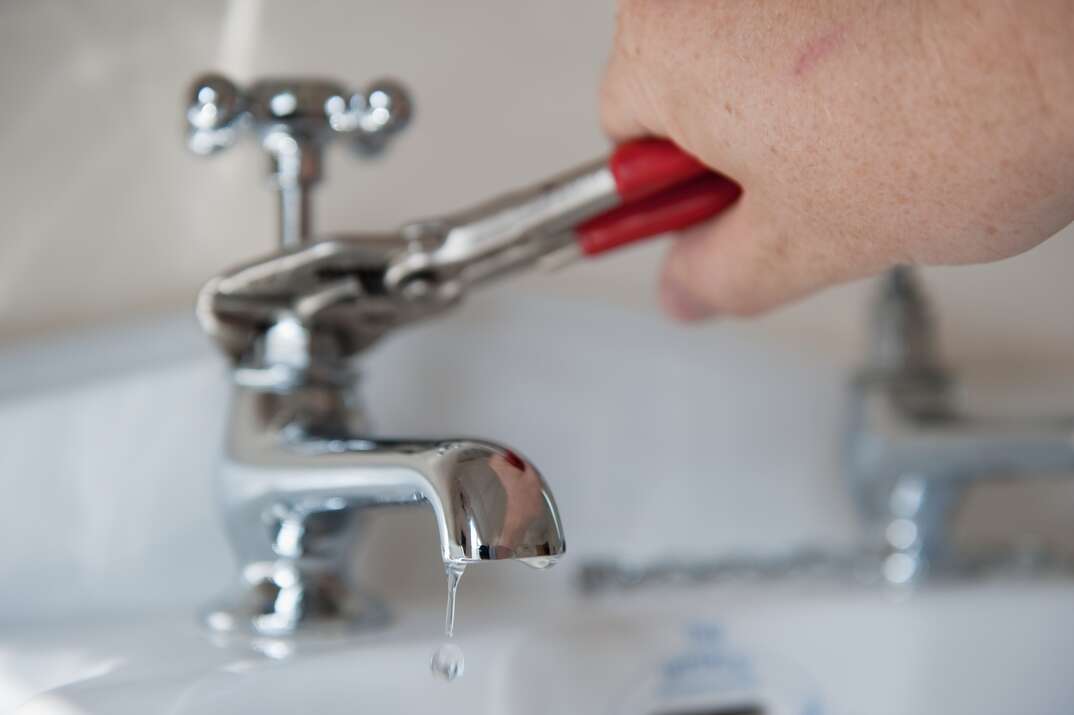Leave it to the Specialists: Typical Home Appliance Problems That Require a Plumbing Professional's Attention
Schedule Today!We've come across the article pertaining to Why is My Home Making Strange Plumbing Noises directly below on the internet and think it made perfect sense to discuss it with you in this article.

To identify loud plumbing, it is essential to establish first whether the undesirable sounds happen on the system's inlet side-in various other words, when water is turned on-or on the drainpipe side. Noises on the inlet side have differed causes: extreme water stress, worn shutoff and also faucet components, improperly linked pumps or various other appliances, improperly positioned pipe fasteners, as well as plumbing runs having too many tight bends or various other restrictions. Noises on the drainpipe side usually come from inadequate location or, just like some inlet side sound, a format including limited bends.
Hissing
Hissing sound that occurs when a faucet is opened somewhat usually signals excessive water pressure. Consult your regional public utility if you presume this trouble; it will be able to inform you the water stress in your area and can set up a pressurereducing shutoff on the inbound water supply pipe if needed.
Various Other Inlet Side Noises
Squeaking, squeaking, scraping, snapping, as well as tapping generally are caused by the expansion or contraction of pipelines, normally copper ones providing warm water. The sounds occur as the pipes slide versus loosened bolts or strike neighboring residence framing. You can frequently identify the place of the trouble if the pipelines are revealed; simply follow the sound when the pipes are making noise. Most likely you will find a loosened pipeline wall mount or a location where pipelines exist so near flooring joists or various other mounting items that they clatter versus them. Affixing foam pipeline insulation around the pipelines at the point of call should remedy the problem. Be sure straps and hangers are secure and provide adequate support. Where possible, pipeline bolts need to be affixed to substantial architectural components such as structure wall surfaces rather than to framing; doing so reduces the transmission of vibrations from plumbing to surfaces that can amplify and move them. If affixing bolts to framework is inescapable, cover pipelines with insulation or other durable material where they contact bolts, and also sandwich completions of new fasteners between rubber washers when mounting them.
Remedying plumbing runs that struggle with flow-restricting tight or numerous bends is a last resource that needs to be embarked on only after consulting a skilled plumbing service provider. However, this circumstance is fairly common in older residences that may not have been constructed with interior plumbing or that have seen several remodels, specifically by novices.
Chattering or Shrilling
Extreme chattering or screeching that takes place when a shutoff or faucet is activated, which usually goes away when the installation is opened fully, signals loosened or faulty internal components. The service is to replace the shutoff or faucet with a brand-new one.
Pumps as well as appliances such as cleaning devices and also dishwashing machines can transfer electric motor noise to pipelines if they are incorrectly connected. Connect such items to plumbing with plastic or rubber hoses-never inflexible pipe-to isolate them.
Drainpipe Sound
On the drain side of plumbing, the principal goals are to remove surface areas that can be struck by falling or hurrying water and to protect pipes to consist of unavoidable audios.
In new building and construction, tubs, shower stalls, commodes, and wallmounted sinks and also basins need to be set on or against resistant underlayments to decrease the transmission of audio through them. Water-saving commodes and faucets are much less loud than traditional versions; install them as opposed to older types even if codes in your location still allow using older components.
Drainpipes that do not run up and down to the cellar or that branch into straight pipe runs supported at flooring joists or other mounting existing especially frustrating noise issues. Such pipelines are large sufficient to radiate substantial vibration; they likewise lug significant quantities of water, that makes the situation worse. In brand-new construction, specify cast-iron dirt pipelines (the large pipelines that drain pipes toilets) if you can afford them. Their enormity has a lot of the noise made by water going through them. Additionally, avoid directing drains in wall surfaces shared with bed rooms and also areas where people gather. Wall surfaces having drains should be soundproofed as was explained previously, making use of dual panels of sound-insulating fiberboard and wallboard. Pipes themselves can be covered with unique fiberglass insulation created the purpose; such pipes have an invulnerable plastic skin (occasionally having lead). Results are not always satisfying.
Thudding
Thudding sound, usually accompanied by shuddering pipes, when a faucet or appliance valve is shut off is a condition called water hammer. The sound as well as resonance are brought on by the resounding wave of stress in the water, which instantly has no place to go. Sometimes opening a valve that discharges water quickly into a section of piping containing a restriction, elbow, or tee fitting can produce the same condition.
Water hammer can usually be cured by installing installations called air chambers or shock absorbers in the plumbing to which the trouble shutoffs or taps are attached. These tools permit the shock wave developed by the halted circulation of water to dissipate airborne they contain, which (unlike water) is compressible.
Older plumbing systems might have brief vertical sections of capped pipe behind walls on faucet runs for the exact same function; these can ultimately full of water, minimizing or ruining their efficiency. The remedy is to drain pipes the water supply completely by shutting off the major water shutoff as well as opening all faucets. After that open up the primary supply valve and shut the taps one by one, starting with the faucet nearest the shutoff and also ending with the one farthest away.
Pipe Down! What to Do About Noisy Water Pipes
Banging
Does it sound like someone's hitting your pipes with a hammer every time you run water? The issue could be a phenomenon called water hammer, which happens when a water valve closes suddenly. You'll often hear it when your washing machine stops filling, for example. The momentum and pressure from the water flowing toward the valve create the shockwave that causes the banging noise when the valve closes suddenly. It might not seem like a big deal, but water hammer can cause damage to your pipes, including leaks and joint damage.
One way to ease water hammer is by installing water hammer arrestors. Your plumber can install them near major valves to help cushion the shock of the water when it suddenly stops or changes direction. You might also need to reduce the water pressure coming into your home with the pressure-reducing valve.
Gurgling
Gurgling sounds typically come from drainpipes. This sound happens when the water can't drain properly, usually when there's a clog in the water pipes. Drain clogs often happen due to hair, grease, soap scum or objects that fall down the drain. They can happen suddenly or build up slowly over time.
You can sometimes clear a clogged drainpipe with a plunger to help force the clog through the pipe. A plumbing snake or an auger can also help break up tough clogs. A common plumbing myth is that chemical drain cleaners are safe and effective, but they often don't work and contain harsh chemicals that can hurt you and your plumbing. If you can't remove the clog with a plunger or snake, it's best to call a plumber to help.
Rattling
Water travels through your pipes with lots of pressure, so the pipes are bound to move a little. Pipes should be secured well to keep them from moving too much when water runs through them. If they're not properly fastened or the fasteners come loose, you might hear them rattling when you run water.
Resecuring the pipes can cut down on the rattling noise and prevent damage to the joints of the water pipes. However, many pipes run behind walls where you can't easily access them. A plumber can help determine if loose fasteners are the cause of the rattling and resecure them if necessary.
Humming
If your pipes sound like they're humming, it's likely a water pressure issue. When the water pressure is high, it can cause the water pipes to vibrate and create a humming sound. High water pressure is more common if you have a well for your water, but it can happen with municipal water as well. High water pressure can damage your plumbing and cause leaks.
If you have a well, check the pressure to ensure it's below 55 pounds per square inch. A plumber can test the pressure for you and help adjust the issue if you're not sure how to do it yourself. If you're connected to the municipal water source, your home likely has a pressure-reducing valve near where the water enters your home. You can adjust the screw in the valve to decrease the pressure, but be careful not to lower it too much.
Squeaking
Squeaking or squealing is another common sound you'll hear in your water pipes. This often happens if small components within the plumbing, such as washers or aerators, become loose, dirty or damaged. When this is the cause, the squeaking sound is usually confined to a certain fixture or area of plumbing. Replaced or repairing the part should solve the noise.
If you can hear the squealing sound everywhere in your home, it could be an issue with water pressure. Buildup in the pipes narrows the space for the water, which can cause squealing as the water tries to squeeze through the pipes. Wear and tear on the plumbing system can also cause whistling or squeaking. These situations typically require a professional plumber to diagnose and repair.
https://www.homeserve.com/en-us/blog/home-improvement/water-pipes-making-noise/

We are very focused on Why Do My Pipes Make Noises and I hope you enjoyed my blog entry. Sharing is good. Helping people is fun. I thank you for reading our article about Why Your Water Pipes Are Noisy and How To Shut Them Up.
Services